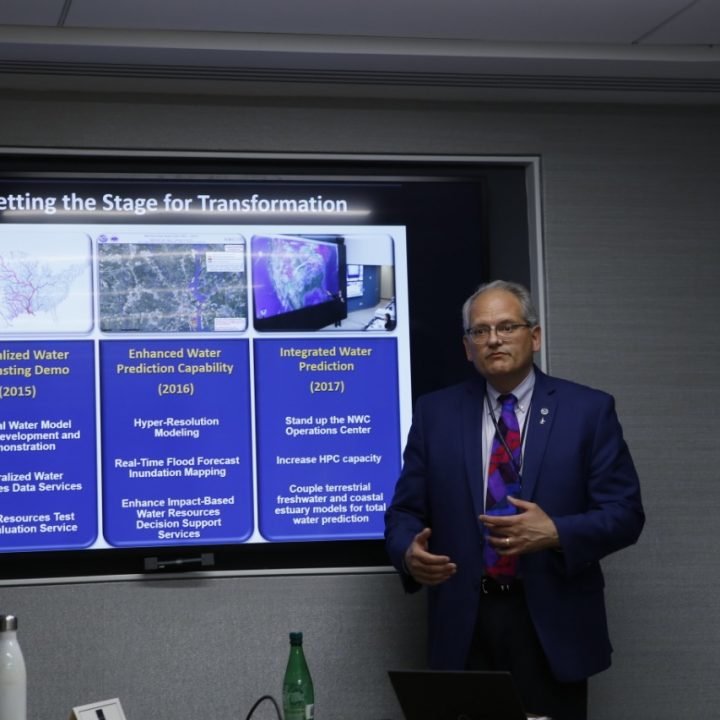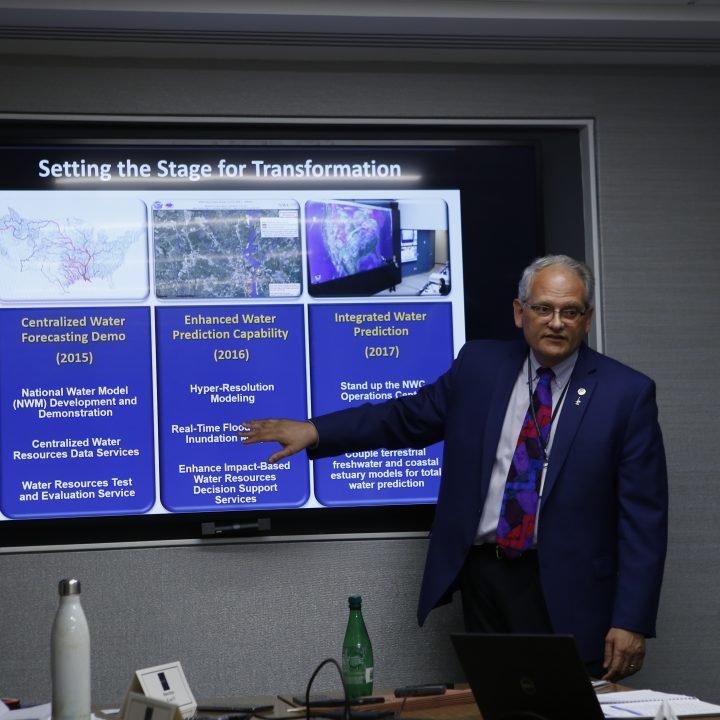NOAA has more to offer

The National Oceanic and Atmospheric Administration (NOAA) of the United States of America. Photo: Rickson Jordan Bau.
The National Oceanic and Atmospheric Administration (NOAA) of the United States of America offers scientific information and data that can help inform policy decisions both at the federal and state levels of the American society.
What is more is that the information and data is available for countries like the Solomon Islands, Vanuatu and Papua New Guinea should they seek to use it.
NOAA, a U.S. Department of Commerce, is an agency that enriches life through science, with a wide reach as it works to keep the public informed of the changing environment around us.
It seeks to understand and predict changes in climate, weather, oceans and coasts; to share that knowledge and information with others; and to conserve and manage coastal and marine ecosystems and resources.
Despite being the world’s leading economy and home to numerous technological inventions, the U.S. also has its water issues.
From droughts to flooding, hurricanes and tornados, water management has become so critical that states have to manage their water resources, in conjunction with the Federal Government’s Global Water Strategy.
A group of international journalists who toured the U.S. to learn about the country’s water resources and water management approaches were told, partnership matters when it comes to water management.

NOAA office in Washington DC. Photo: Rickson Jordan Bau.
Director of the Office of Water Prediction, National Weather Service (NWS) in the U.S. Dr. Thomas Graziano said stakeholder consultations are the main drivers of sound water management policies that benefits the American people.
He said people treat information about water management very seriously, after all they are the beneficiaries, but he said this must also be well received through effective communication.

Dr. Graziano further stated emergency managers in particular are looking for information at the street level, like inundation maps to help them pre-position their resources to effectively manage the effects of flooding.
But he said partnerships are at the heart of all water management efforts in the United States.
According to Dr. Graziano, the U.S. has about twenty-four Federal agencies that have some hand on water, working to complement each other in terms of water management.
The U.S. Geological Survey, the U.S. Army Corp of Engineers, the U.S. Bureau of Reclamation and others are partnering with NOAA on a daily basis to put together a consortium back in 2009 after recognizing that water resource challenges faced by the U.S. are growing and that they are multidisciplinary in nature and bigger than any one agency.
Dr. Graziano said partnering with these Federal agencies as well as the research and academic community has produced amazing results as solutions to water challenges faced in the U.S.
He says with population growth and climate change affecting the world, water resources will be under immense threat once they are not effectively managed.

The Director of the Office of Water Prediction, National Weather Service (NWS) in the U.S. said despite providing the best forecasts in the world, close cooperation and partnership with local emergency managers and the media are very important.
“Those relationships that we build on the national, regional and local levels are absolutely critical to getting the word out and making sure that people respond appropriately”, he said.
Unlike Vanuatu and Papua New Guinea, Solomon Islands has its own water issues; one of which is poor water quality, a centralized water management system and heavy dependence on a single source of surface water at least in the capital Honiara.
Honiara residents are now suffering from poor water quality and water cuts as the only water authority, Solomon Water embarks on water rationing due to high turbidity.
SIBC News understands, the water authority is planning to build a water filtering system in the near future to address poor water quality currently faced in the Solomon Islands capital, Honiara.
Honiara residents have often been advised to boil water for household consumption since water cuts became common in April 2019.
Water is centrally managed by the Central Government in Solomon Islands, through a State-Owned Enterprise.
By Rickson Jordan Bau.


